Companion Threads:
Obama’s Iraq Surrender
May 31, 2013 by Arnold Ahlert 214 Comments
Arnold Ahlert is a former NY Post op-ed columnist currently contributing to JewishWorldReview.com, HumanEvents.com and CanadaFreePress.com. He may be reached at atahlert@comcast.net

After almost a century of existence, the borders that form the modern Mideast nation states appear to be on the verge of disintegration. Part of the driving force behind this meltdown, as observers are beginning to acknowledge, is of course the intractable sectarian war in Syria. But a far bigger part of the picture is the accelerating destabilization of Iraq. The breakdown of Iraq, with its far-reaching regional ramifications, is attributable in no small part to President Obama’s abandonment of the U.S.’s mission in the country, a betrayal committed in total defiance of the military establishment’s recommendations, which squandered the hard-won victory handed down by President Bush. As predicted, our precipitous withdrawal has left the once pacified nation riven with sectarian strife, primarily among Sunni and Shia Muslims and the Kurds. As the region descends, the consequences of Obama’s folly are only becoming more obvious: a nation that once stood a chance at being a source of stability in the region is instead rapidly becoming its maelstrom.
In 1916, Sir Mark Sykes of Britain and Georges Picot of France signed a secret agreement, with Russia’s approval, to dissolve the Ottoman Empire. The Sykes-Picot agreement was concerned with creating Middle East spheres of influence for France and Great Britain following their victory in WWl. The League of Nations facilitated the mandates over the territory captured by both nations. France got Syria and Lebanon, and Britain got Iraq. The agreement also separated the British mandatory Palestine, known by its Arab residents prior to WWI as “Surya al-Janubiyya” (Southern Syria), from the French mandatory of Syria to the north. For its approval of the deal, Russia received territory that eventually became Turkey.
Thus, the artificial borders of five countries were established. In the ensuing years, two critical realities were also realized: in Syria, the Alawite minority, the sect to which current president Bashar Assad belongs, was granted power over the Sunni majority. In Iraq, the Sunni minority was empowered at the expense of the Shi’ite majority. In other words, borders created to satisfy European sensibilities largely ignored the realities of historic ethnic, tribal and sectarian divisions. these divisions were exacerbated by the rise of dictators, tyrants and Arab monarchs who maintained power after the French and British withdrew in the middle of last century.
It is those divisions that are now asserting themselves.
The current flashpoint involves the 370 mile border separating Iraq from Syria. The civil war on the Syrian side has drawn everyone in the region into the conflict. On the Shi’ite side, troops from Iran and their Lebanese-based proxy, Hezbollah, have aligned themselves with Bashar Assad. Troops from Saudi Arabia and Qatar are fighting on the side of the rebels, along with elements of al Qaeda. Turkey also has Sunni allies in Syria, but their main ambition appears to be separating Kurdish elements from both Syria and Iraq, because they have made peace with the Kurdish rebels within their own borders, and are seeking to expand their regional influence as a result.
Then there is Russia. They have proposed a “peace” conference scheduled for June 15-16 in Geneva, Switzerland, as an attempt to end the two years of fighting in Syria. Yet their motives are profoundly transparent, as evidenced by the reality that they have reportedly shipped anti-aircraft S-300 rockets to Assad. This move preempts any effort by Western nations to establish a “no-fly” zone over Syrian airspace (an idea the Obama administrated toyed with, but never followed through on), thereby tipping the balance of power in Assad’s favor. Yet more importantly, it establishes that Russia’s position at the peace conference will be an effort to dictate post-war terms, with the intention of keeping Assad in power. Since rebel forces consider this completely antithetical to their ambitions, the fighting will undoubtedly continue.
The most likely outcome of that fighting is a stalemate leading to the breakup of Syria into three mini-states, respectively controlled by Kurds, Sunnis and Alawites. Since most of the Alawites live in the coastal corridor that includes Damascus, even this seemingly chaotic scenario accrues to Russian interests. They maintain an influence in the region, and they will still have their naval base in Tartous.
On the Iraqi side of the border, the developments are even more ominous. Despite being largely ignored by the American media, the disintegration of Iraq is continuing rapidly. The deaths of 700 Iraqis killed in sectarian violence throughout the country in April represents the largest number of casualties in the last five years. In the northern part of Iraq, the province of Iraqi Kurdistan has, for all intents and purposes, dissolved its ties with the Shia-dominated government of Nouri al-Maliki in Baghdad. They are in the process of cutting autonomous deals with international oil companies, and next September a new pipeline will carry oil from Kurdistan to Turkey linking them to their Kurdish brethren in that region. In the process they have ignored U.S. opposition to any oil exports “without the appropriate approval of the Iraqi federal government.”
Iraqi Sunnis, who held a vise-like grip on power during the days of Saddam Hussein, have little incentive to remain united with the current government either. In late April, after Iraqi Security Forces (ISF) opened fire on Sunni protesters in Hawija, Kirkuk, killing 20 and wounding over 100, Sunni tribal militia began mobilizing against the government. Several clashes between the ISF and the militias have taken place, with thousands of tribe members in Kirkuk and Salah ad-Din vowing to seek revenge. Other clashes have broken out in the Anbar provice cities of Ramadi and Fallujah as well. In Mosul, protesters demanded a withdrawal of government forces.
Furthermore, the efforts of Sunni leaders to maintain ties to the Maliki government have undermined their credibly with their constituents, who see them as sellouts to a regime that has consistently ignored the concerns of Sunnis. Many Sunnis are convinced that Maliki is intent on establishing a “Shi’ite crescent” in conjunction with Iran. The Sunni counterweight to that reality is their alliance with Sunni rebels in Syria. That effectively obliterates the Syrian-Iraqi border, and establishes the possibility that they will precipitate a civil war with Maliki to realize a separate state comprised of Sunnis from both nations.
In a column for the Washington Post, former Ambassador to Iraq Ryan Crocker explains that the battle in Hawija represented a critical turning point in the effort to keep Iraq united. Yet far more importantly, he inadvertently reveals the fecklessness of President Obama’s politically motivated and premature withdrawal of American troops from the country. “Al-Qaeda in Iraq has already begun to reestablish itself in areas that Iraqi and U.S. forces cleared at enormous cost over the past five years,” he writes.And Jabhat al-Nusra, al-Qaeda in Iraq’s front group in Syria, is attempting to hijack the secular resistance to Syrian President Bashar al*Assad. These developments threaten not only to unravel the gains made since 2007, but also to energize the forces of violent extremism in the heart of the Arab world, already burning in Syria.
Crocker further notes the current Sunni-Shi’ite confrontation is reminiscent of the one which occurred in 2006 that precipitated the troop surge so vehemently opposed by Obama and the Left. Sen. Harry Reid (D-NV) declared that the war in Iraq was “lost” before the troops even arrived in country. Yet Crocker notes that, as a result of the hard-won security established by those troops, “Sunni and Shiite leaders opted to resolve their differences through accommodation rather than through violence.” He believes the current impasse can be resolved by “a sustained, high-level diplomatic effort.” Yet absent the presence of U.S. troops to add weight to that diplomatic effort, such a prescription appears hopeless.
On Friday, October 21, 2011, President Obama, in a statement similar to the one he made last week regarding the war on terror in general, “declared” that the war in Iraq was over. “I can report that, as promised, the rest of our troops in Iraq will come home by the end of the year,” Obama said. “After nearly nine years, America’s war in Iraq will be over.” In doing so, he ignored the advice of military commanders who insisted a minimum of 20,000 troops should be left behind to ensure the stability that America’s fighting forces fought and died to establish. Thus, Obama has made a mockery of our soldiers’ sacrifices and snatched defeat from the jaws of victory — all so he could placate his leftist base.
The tragic consequences of that decision are unfolding at a rapid pace. A complete — and bloody — realignment of the entire Middle East is occurring, none of which accrues to America’s interests. In the Middle East, the U.S. has traded possible stability for almost certain chaos. As for our new role in shaping events there, it is best described by NY Post columnist Benny Avni. “What are America’s interests in any of this?” he writes. “Doesn’t matter. By opting to sit out, we’ve basically forfeited any say in the outcome.”





 Reply With Quote
Reply With Quote









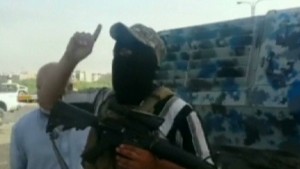 Terrorists gain ground in Iraq fighting
Terrorists gain ground in Iraq fighting 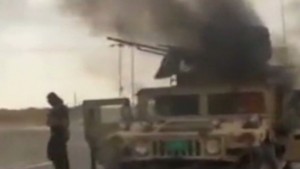 More fighting ahead in Iraq?
More fighting ahead in Iraq? 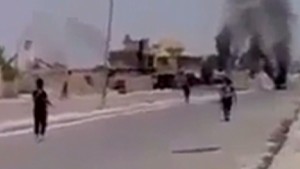 Turkey affected in the Iraq crisis
Turkey affected in the Iraq crisis 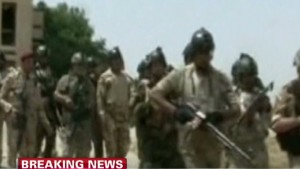 Cities under siege in Iraq
Cities under siege in Iraq 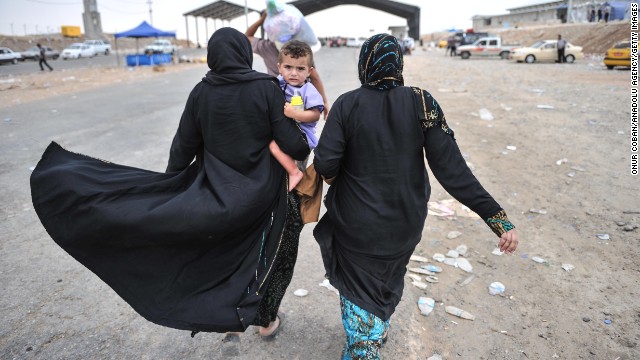 Photos: Iraqi civilians flee Mosul
Photos: Iraqi civilians flee Mosul 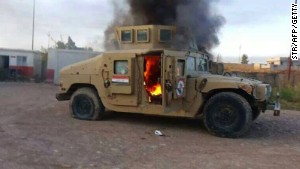 Militant group seizes cities in Iraq
Militant group seizes cities in Iraq 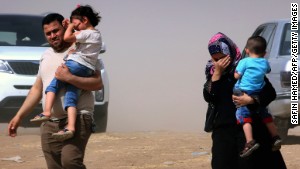 What's next for Iraq?
What's next for Iraq? 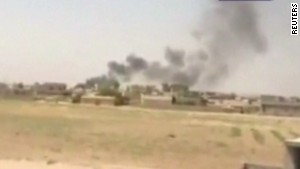 Militants take control of Iraqi city
Militants take control of Iraqi city 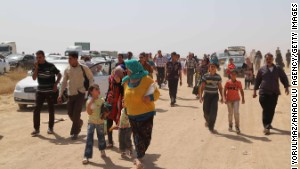 Iraq violence leaves more than 100 dead
Iraq violence leaves more than 100 dead 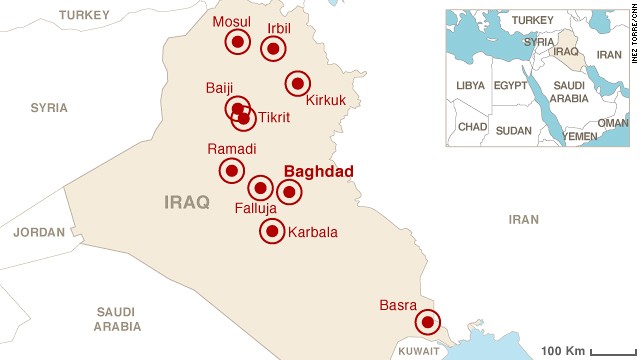 Map: Unrest in Iraq
Map: Unrest in Iraq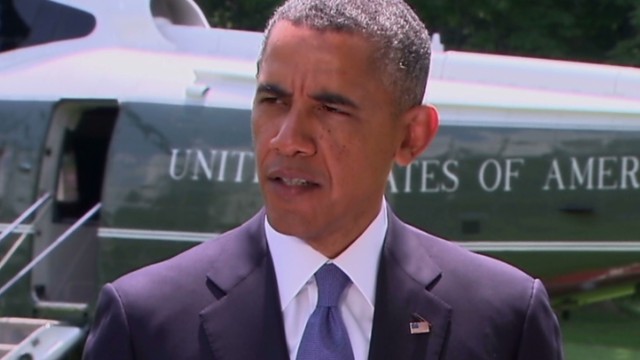
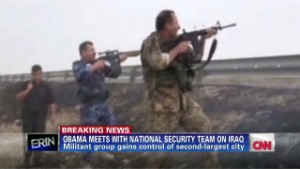 How can Obama counter ISIS threat?
How can Obama counter ISIS threat? 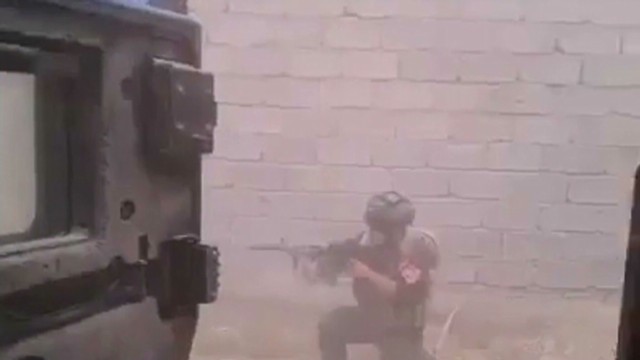 Iraq desperate for options against ISIS
Iraq desperate for options against ISIS 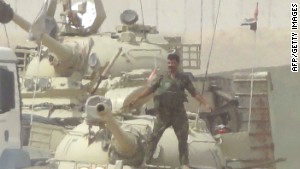 ISIS dividing Iraq along ethnic lines
ISIS dividing Iraq along ethnic lines 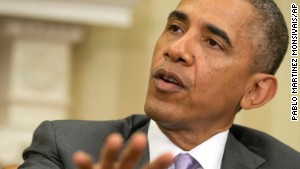 Obama: Not 'ruling out anything' on Iraq
Obama: Not 'ruling out anything' on Iraq 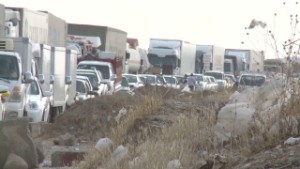 ISIS attacks cause mass exodus in Iraq
ISIS attacks cause mass exodus in Iraq 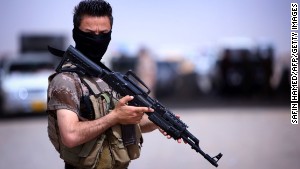 ISIS attacks cause mass exodus in Iraq
ISIS attacks cause mass exodus in Iraq 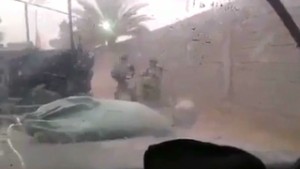 'This was a well-planned attack'
'This was a well-planned attack' 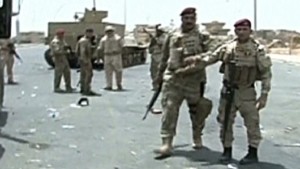 Who are the militants battling for Iraq?
Who are the militants battling for Iraq? 
 Play Video|1:24
Play Video|1:24





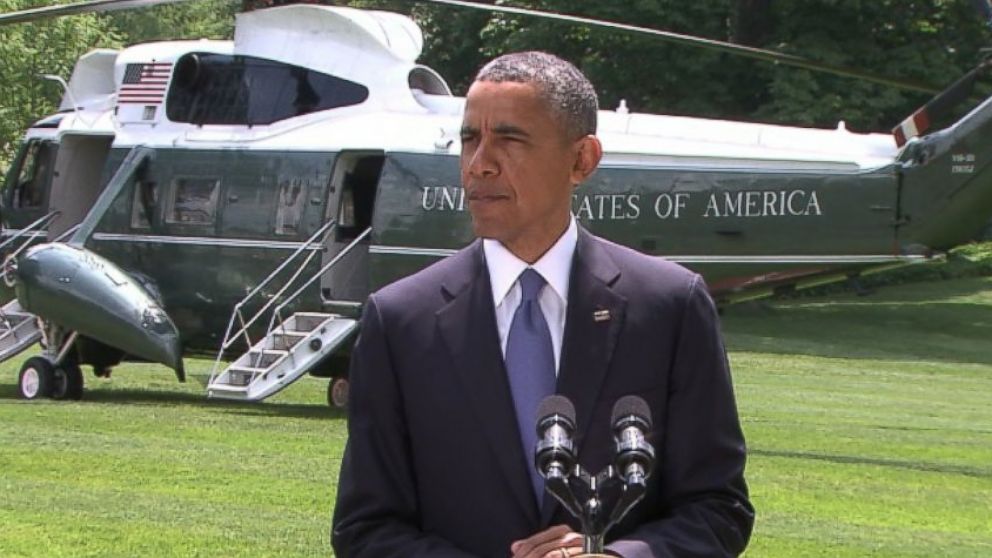

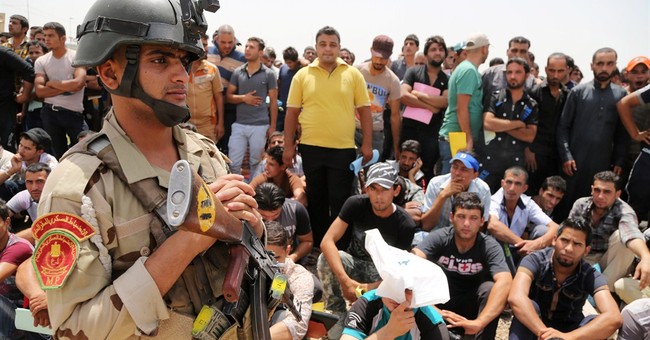

Bookmarks